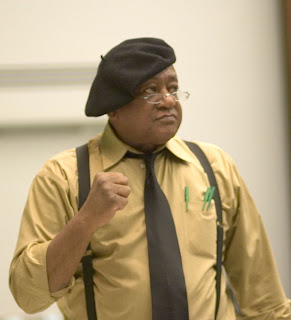Personal Experiences of African American Pioneers to be Featured in HSU Western Heritage Lecture Series.
Noted historian, Dr. Cary Wintz, weaves a tale of both hope and hardship as he brings to life the stories of those who pushed through Texas as pioneers in the late 19th century. Even more intriguing are the personal experiences of African American westerners who carved out a life on the plains of West Texas.
Wintz, distinguished professor of history and interim department chairperson at Texas Southern University in Houston, is the featured speaker in Hardin-Simmons University’s Guy Caldwell Western Heritage Lecture Series.
The free event grows each year as the Abilene community and university students come to hear about the pathfinders who trail blazed these same grounds more than a century ago.
Wintz also edited, abridged, and commented on an edition of Thomas Dixon Jr.’s 1905 novel, The Clansman. He has recently completed work on Oxford University Press’s Encyclopedia of African American History, 1896 to the Present: From the Age of Segregation to the Twenty-first Century, 5 vols, (2009), and is currently working on an Encyclopedia of African American Political Thought and several other projects.
Dr. Wintz also serves in the Texas State Guard with the rank of WO1. He is the public affairs officer of the Houston Medical Response Group of the Medical Brigade and also attached to State Guard headquarters where he serves as historian.
About the Guy Caldwell Western Heritage Lecture Series
The Guy Caldwell Western Heritage Lecture Series began in 2006 in order to promote and preserve the western legacy so closely tied to Hardin-Simmons University, the Abilene area, and West Texas. The series is funded by the Guy Caldwell Endowment.
Dr. Tiffany Fink, chair of the Guy Caldwell Western Heritage Lecture Series and associate professor of history at HSU, says, “It is our goal to continue to preserve the western heritage of HSU, Abilene, and West Texas.”
Historical Background
Guy and Jeanette Caldwell were HSU alums and remained active for many years with the university, Abilene, and the Albany community where they ran a 25,000 acre ranch and farm. Both Guy and Jeanette served in church and civic leadership positions in the Abilene community as well as worked diligently to support their alma mater.
Henry (Guy) Caldwell was born in Breckenridge, September 24, 1904, the only son of C. M. “Judge” and Cora Belle Caldwell. He graduated from Breckenridge High School in 1922, at which time the Caldwell family moved to Abilene, in part so that he could attend what was then known as Simmons College. He graduated from Hardin-Simmons University in 1927 with a major in economics and a minor in history.
Like his father before him, Guy Caldwell was a strong supporter of HSU, serving on the university’s Board of Development, the Academic Foundation, and Board of Trustees.
During the Great Depression of the 1930s, Caldwell worked with a few other Simmons College alumni to establish the dollar-a-month club. The alumni proposed that alumni give a dollar of their earnings to Simmons College each month during the economic calamity in order to help keep the institution open. Dr. Richardson noted that the dollar-a-month club proved very inspirational to the faculty, staff, and administrators, many giving back 50% of their pay checks during the 1930s.
In the early 1950s, Guy and Jeanette Caldwell, in conjunction with the Cowboy Band and some of the HSU faculty, worked with evangelist Billy Graham on the campus and at the Caldwell ranch to produce a motion picture designed to carry a gospel message. To repay the Caldwells and HSU for their support and assistance, Graham spent a day on the Forty Acres, visiting with students, faculty, and staff and delivered an evangelical message to the largest crowd ever gathered in Rose Field House.
In 1958, Guy Caldwell received the John J. Keeter Jr. Alumni Service Award, the highest honor that can be bestowed on an HSU graduate. In 1981, he and his wife, Jeanette, were the first couple to receive jointly the Distinguished Alumni Award.
HSU president emeritus, Dr. Jesse Fletcher, described Caldwell as, “The son of pioneers and the consummate West Texan. With the deep faith that so often characterized the founding fathers, he could be counted on as a rancher, a family man, a churchman, a citizen, and a friend. Few graduates of HSU have been more consistently supportive than Guy Caldwell. That spirit so beautifully practiced by Guy and his college sweetheart and wife, Jeanette, will be reflected on the campus throughout its years.”
PRESS RELEASE: Hardin-Simmons University 2200 Hickory, Abilene, TX, 79698 (325) 670-1000; 877-GO-HSUTX Friday, January 25, 2013 Contact Information jthaxton@hsutx.edu (325) 670-1264
IMAGE CREDIT: This is a file from the Wikimedia Commons. http://commons.wikimedia.org/wiki/File:Natlove2.jpg



















